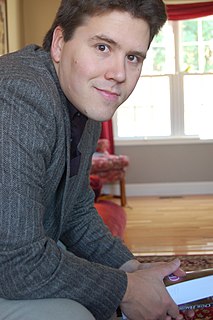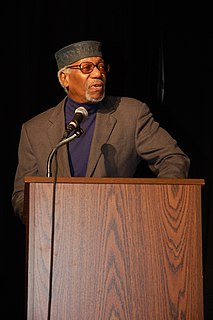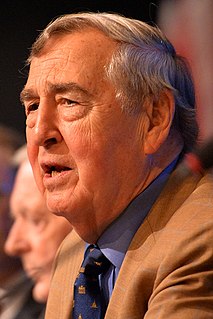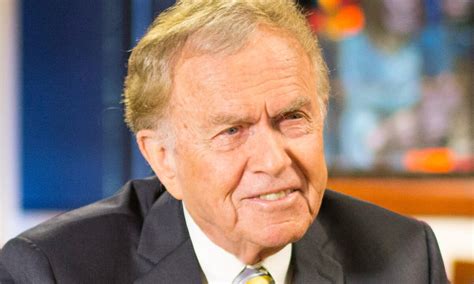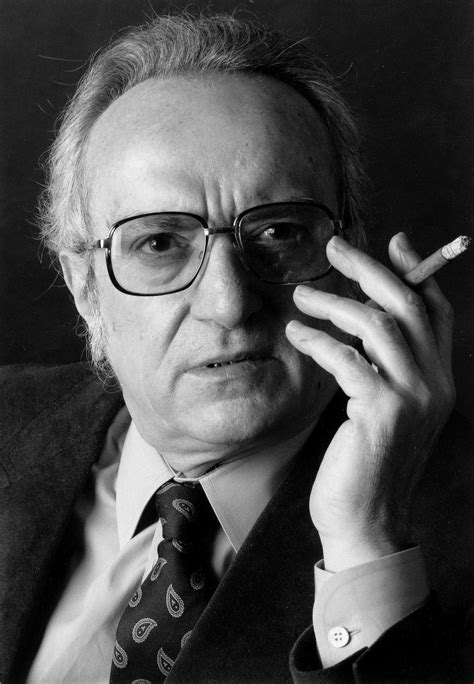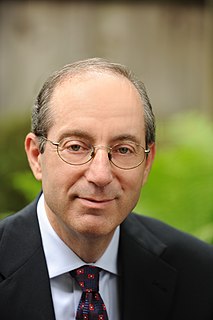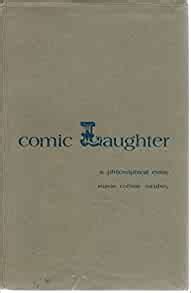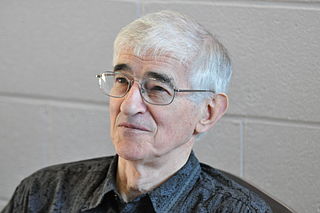Top 523 Historian Quotes & Sayings - Page 9
Explore popular Historian quotes.
Last updated on April 15, 2025.
The world's history is a divine poem, of which the history of every nation is a canto, and every man a word. Its strains have been pealing along down the centuries, and though there have been mingled the discords of warring cannon and dying men, yet to the Christian philosopher and historian - the humble listener - there has been a Divine melody running through the song which speaks of hope and halcyon days to come.
Obama is not just a powerful speaker, but a thinker engaged with the ideas of his country and his age--this argument by historian James Kloppenberg should therefore fascinate anyone interested in American politics or how ideas shape public life. Tracing the influences of Obama's family, educational, and work experiences on his ideas, Reading Obama locates a unique individual in the crosscurrents of American democracy and continuing fights over American ideals.
Ghostly legends dot the Prairie State from its big cities to its small towns. These stories make each community unique in a way that no other landmark ever could But Michael Kleen understands that these ghosts are more than just stories. As a folklorist and historian, Kleen shows readers the connection between our past and our present. Haunting Illinois is more than just a ghostly travel guide, it’s an adventure offering new insight on the haunts you know, but also takes you on a trip to the spirits in your own backyard.
Any historian of the literature of the modern age will take virtually for granted the adversary intention, the actually subversive intention, that characterizes modern writing - he will perceive its clear purpose of detaching the reader from the habits of thought and feeling that the larger culture imposes, of giving him a ground and a vantage point from which to judge and condemn, and perhaps revise, the culture that produces him.
The act of choosing what to place in your piece when you're a historian or a non-fiction writer already renders it into fiction for someone else. In some ways fiction comes a lot closer to reality. When you start talking about something as brutal as slavery and life in the American West, it's really important to take a non- judgmental stance. We romanticize a great deal about life in the American West, but I thank God I wasn't living during that time. No matter what color you were, it was rough, crude, tough living.
Year after year, author/historian William Loren Katz continues to mine the lodestone of Black culture, and it is simply amazing how often he manages to find new treasures. Here, with the same insight he brought to Black Indians and his other books, the author traces the courageous role of Black women in settling the West. He deftly shows how these pioneering spirits helped stabilize early communities in Texas, Oklahoma, California and elsewhere.
I am not a historian, but I find myself being more and more fascinated by history and now I find myself reading more and more about history. I am very interested in Napoleon, at the present: I'm very interested in battles, in wars, in Gallipoli, the First World War and so on, and I think that as I age I am becoming more and more historical. I certainly wasn't at all in my early twenties.
There are two processes which we adopt consciously or unconsciously when we try to prophesy. We can seek a period in the past whose conditions resemble as closely as possible those of our day, and presume that the sequel to that period will, save for some minor alterations, be similar. Secondly, we can survey the general course of development in our immediate past, and endeavor to prolong it into the near future. The first is the method the historian; the second that of the scientist. Only the second is open to us now, and this only in a partial sphere.
Food historian Jessica B. Harris says African American cuisine is simply what black people ate. When I think about what my family ate, we ate what people think of as soul food on special occasions, on holidays, but our typical diet was leafy greens and nutrients and tubers - food that was as fresh as being harvested right before our meal. Whatever was in season, that's what we were eating. It was being harvested right from our backyard.
Let me name three of the people who influenced me, although it's definitely not a complete list. Ayesha Jalal, the formidable Pakistani-American historian, has rigorously re-evaluated Jinnah's political strategies leading up to Partition. Akbar Ahmed, a former diplomat and now a distinguished scholar, has documented Jinnah's life as a man who welcomed, worked with, and even married people of other faiths. And then there is Ardeshir Cowasjee, the great Parsi newspaper columnist, who in his mid-80s is a kind of living history of all of Pakistan, old enough to have known Jinnah himself.
I foresee the time when the painter will paint that scene, no longer going to Rome for a subject; the poet will sing it; the historian record it; and, with the Landing of the Pilgrims and the Declaration of Independence, it will be the ornament of some future national gallery, when at least the present form of slavery shall be no more here. We shall then be at liberty to weep for Captain Brown. Then, and not till then, we will take our revenge.
Some European countries insist on saying that during World War II, Hitler burned millions of Jews and put them in concentration camps. Any historian, commentator or scientist who doubts that is taken to prison or gets condemned. Although we don't accept this claim, if we suppose it is true... If the Europeans are honest they should give some of their provinces in Europe - like in Germany, Austria or other countries - to the Zionists and the Zionists can establish their state in Europe. You offer part of Europe and we will support it.
As a journalist, I never critiqued anyone. I never review books. I've never felt qualified as a musician to say whether someone is a good musician or a bad musician. What happens with Black writers and Black artists is that if you're critiqued, for example, by a Black historian who wants to get his name on the cover of "The New York Times," and he says something, like, wacky, well, he'll get his name on the cover of "The New York Times" and he might get tenure, and your career suffers.
But, if we explore the literature of Heroism, we shall quickly come to Plutarch, who is its Doctor and historian. To him we owe the Brasidas, the Dion, the Epaminodas, the Scipio of old, and I must think we are more deeply indebted to him than to all the ancient writers. Each of his "Lives" is a refutation to the despondency and cowardice of our religious and political theorists. A wild courage, a Stoicism not of the schools, but of the blood, shines in every anecdote, and had given that book immense fame.
The Tarahumara would party like this all night, then rouse themselves the next morning to face off in a running race that could last not two miles, not two hours, but two full days. According to the Mexican historian Francisco Almada, a Tarahumara champion once ran 435 miles, the equivalent of setting out for a jog in New York City and not stopping till you were closing in on Detroit.
If being an anti-art artist is difficult, being an anti-art art historian is a hard position indeed. His doctrinal revolutionism brings forth nothing new in art but reenacts upheavals on the symbolic plane of language. It provides the consoling belief that overthrows are occurring as in the past, that barriers to creation are being surmounted, and that art is pursuing a radical purpose, even if it is only the purpose of doing away with itself.
When a rapidly rising power rivals an established ruling power, trouble ensues. In 11 of 15 cases in which this has occurred in the past 500 years, the result was war. The great Greek historian Thucydides identified these structural stresses as the primary cause of the war between Athens and Sparta in ancient Greece. In his oft-quoted insight, "It was the rise of Athens and the fear that this inspired in Sparta that made war inevitable."
If there were even one spark of evidence from antiquity that Jesus even may have gotten married, then as a historian, I would have to weigh this evidence against the total absence of such information in either Scripture or the early church traditions. But there is no such spark-not a scintilla of evidence-anywhere in historical sources. Even where one might expect to find such claims in the bizarre, second-century, apocryphal gospels...there is no reference that Jesus ever got married.
No passion is stronger in the breast of man than the desire to make others believe as he believes. Nothing so cuts at the root of his happiness and fills him with rage as the sense that another rates low what he prizes high. Whigs and Tories, Liberal party and Labour party - for what do they battle except their own prestige? It is not love of truth but desire to prevail that sets quarter against quarter and makes subserviency rather than the triumph of truth and the exaltation of virtue - but these moralities belong, and should be left to the historian, since they are as dull as ditch water.
The historian Arthur Schlesinger has pointed out that people tend to get interested in politics again every 30 years. The universe moves in cycles of three. The number figures in everything from Pythagoras's theory that the universe is based on three to the Father-the-Son-and-the-Holy- Ghost to the three-sided pyramidal shapes that intersect in the Jewish Star of David. The notion of the mystical three, metaphysically, spiritually, and even politically, is quite interesting to me.
All I am in private life is a literary critic and historian, that's my job...And I'm prepared to say on that basis if anyone thinks the Gospels are either legends or novels, then that person is simply showing his incompetence as a literary critic. I've read a great many novels and I know a fair amount about the legends that grew up among early people, and I know perfectly well the Gospels are not that kind of stuff.
For if I should not believe all that is written by Historians, of the glorious acts of Alexander, or Caesar; I do not think the Ghost of Alexander, or Caesar, had any just cause to be offended; or any body else, but the Historian. If Livy say the Gods made once a Cow speak, and we believe it not; we distrust not God therein, but Livy. So that it is evident, that whatsoever we believe, upon no other reason, then what is drawn from authority of men only, and their writings; whether they be sent from God or not, is Faith in men only.
Does it take a blanket presupposition for a historian to discount some miracle stories as legendary? No, because, as even Bultmann recognized, there is no problem accepting reports even of extraordinary things that we can still verify as occurring today, like faith healings and exorcisms. However you may wish to account for them, you can go to certain meetings and see scenes somewhat resembling those in the gospels. So it is by no means a matter of rejecting all miracle stories on principle. Biblical critics are not like the Committee for Scientific Investigation of Claims of the Paranormal.
The main duty of the historian of mathematics, as well as his fondest privilege, is to explain the humanity of mathematics, to illustrate its greatness, beauty and dignity, and to describe how the incessant efforts and accumulated genius of many generations have built up that magnificent monument, the object of our most legitimate pride as men, and of our wonder, humility and thankfulness, as individuals. The study of the history of mathematics will not make better mathematicians but gentler ones, it will enrich their minds, mellow their hearts, and bring out their finer qualities.
The historian of science may be tempted to claim that when paradigms change, the world itself changes with them. Led by a new paradigm, scientists adopt new instruments and look in new places. even more important, during revolutions, scientists see new and different things when looking with familiar instruments in places they have looked before. It is rather as if the professional community had been suddenly transported to another planet where familiar objects are seen in a different light and are joined by unfamiliar ones as well.
History, when rightly written, is but a record of providence; and he who would read history rightly, must read it with his eyes constantly fixed on the hand of God. This statement of a nineteenth-century historian sums up the responsibility of the Christian teacher of history, for he who would teach history or any subject matter rightly, must teach it with his eyes constantly fixed on the hand of God.
John XXI was a very great pope and he's the one who actually corrected the liturgy. He did so because of his friend Jules Isaac, a French Jewish historian who was a friend of John Paul, of John 23rd, and he convinced him and he changed the liturgy, no more Jew, the perfidious Jew and so forth and now, and don't speak any more of the Jews killing Christ. Things have changed.
Just as the historian can teach no real history until he has cured his readers of the romantic delusion that the greatness of a queen consists in her being a pretty woman and having her head cut off, so the playwright of the first order can do nothing with his audience until he has cured them of looking at the stage through the keyhole, and sniffing round the theatre as prurient people sniff round the divorce court.
The master-economist must possess a rare combination of gifts. He must reach a high standard in several different directions and must combine talents not often found together. He must be mathematician, historian, statesman, philosopher - in some degree. He must understand symbols and speak in words. He must contemplate the particular in terms of the general, and touch abstract and concrete in the same flight of thought. He must study the present in the light ofthe past for the purposes of the future
The historian should be fearless and incorruptible; a man of independence, loving frankness and truth; one who, as the poets says, calls a fig a fig and a spade a spade. He should yield to neither hatred nor affection, not should be unsparing and unpitying. He should be neither shy nor deprecating, but an impartial judge, giving each side all it deserves but no more. He should know in his writing no country and no city; he should bow to no authority and acknowledge no king. He should never consider what this or that man will think, but should state the facts as they really occurred.
The Reverend Douglas Wilson may not be a professional historian, as his detractors say, but he has a strong grasp of the essentials of the history of slavery and its relation to Christian doctrine. Indeed, sad to say, his grasp is a great deal stronger than that of most professors of American history, whose distortions and trivializations disgrace our college classrooms. And the Reverend Mr. Wilson is a fighter, especially effective in defense of Christianity against those who try to turn Jesus' way of salvation into pseudo-moralistic drivel.
the word 'justification' has itself had a chequered career over the course of many centuries of debate. As the major historian of the doctrine has noted, the word has long since ceased to mean, in ecclesial debates, what it meant for Paul himself - which is confusing, since the debates have gone on referring to Paul as though he was in fact talking about what they want to talk about. It is as though the greengrocer treated you to a long discussion of how onions are grown, and how best to cook with them, when what you had asked was how much he would charge for three of them.
Why did John Wilkes Booth do it? In My Thoughts Be Bloody young historian Nora Titone is one of the few to have genuinely explored this question. In doing so, she has crafted a fascinating psychological drama about one of the central events of the Civil War: the assassination of Abraham Lincoln. This book promises to stimulate lively historical debate, and will be a treat for every Civil War buff who always pondered that haunting question, “what made him pull that trigger?” Bravo on a marvelous achievement.
[talking about the Holocaust] 'But to put something in context is a step towards saying it can be understood and that it can be explained. And if it can be explained that it can be explained away.' 'But this is History. Distance yourselves. Our perspective on the past alters. Looking back, immediately in front of us is dead ground. We don't see it, and because we don't see it this means that there is no period so remote as the recent past. And one of the historian's jobs is to anticipate what our perspective of that period will be... even on the Holocaust.
It is difficult to find a reputable American historian who will acknowledge the crude fact that a Franklin Roosevelt, say, wanted to be President merely to wield power, to be famed and to be feared. To learn this simple fact one must wade through a sea of evasions: history as sociology, leaders as teachers, bland benevolence as a motive force, when, finally, power is an end to itself, and the instinctive urge to prevail the most important single human trait, the necessary force without which no city was built, no city destroyed.
The point I would make is that the novelist and the historian are seeking the same thing: the truth – not a different truth: the same truth – only they reach it, or try to reach it, by different routes. Whether the event took place in a world now gone to dust, preserved by documents and evaluated by scholarship, or in the imagination, preserved by memory and distilled by the creative process, they both want to tell us how it was: to re-create it, by their separate methods, and make it live again in the world around them.
It is clear that everybody interested in science must be interested in world 3 objects. A physical scientist, to start with, may be interested mainly in world 1 objects--say crystals and X-rays. But very soon he must realize how much depends on our interpretation of the facts, that is, on our theories, and so on world 3 objects. Similarly, a historian of science, or a philosopher interested in science must be largely a student of world 3 objects.
The first job of the historian and of the journalist is to find facts. Not the only job, perhaps not the most important, but the first. Facts are the cobblestones from which we build roads of analysis, mosaic tiles that we fit together to compose pictures of past and present. There will be disagreement about where the road leads and what reality or truth is revealed by the mosaic picture. The facts themselves must be checked against all the available evidence. But some are round and hard--and the most powerful leaders in the world can trip over them. So can writers, dissidents and saints.
While the scientist, on the one hand, is concerned with giving a faithful description of facts, on the other, he has the equally important task of construing them in relation to some explanatory conjecture. Similarly the historian has a double duty: both of reporting the past as nearly as possible as it passed or was lived through by men at the time (without doctoring up events to fit later developments or some more "enlightened reading" of them); and second, of interpreting their import in the light of a present hypothesis.
What I notice, as a historian reading stories about so-called nature miracles, the walking on the water, or the miraculous catch of fishes, they're done especially for the insiders, for the disciples. Usually healings and exorcisms are done for people along the road, as it were. Jesus doesn't come on the water to save the fishing fleet from Capernaum, he comes on the water to save the disciples. It's a parable, dummy, it's a parable, don't you get it? If the leadership of the church takes off in a boat without Jesus, it will sink, it will get nowhere.
Let's say that history is what happened. The record of what happened is how each individual happens to see those events. They've already been ?ltered. When the historian or biographer takes over, history is no longer exactly what happened, because there has been a process of selection going on; it's impossible to write about anyone, any event, in any period of time, without in some way imposing, even unconsciously, your own standards, your own values.
I must say a few words about memory. It is full of holes. If you were to lay it out upon a table, it would resemble a scrap of lace. I am a lover of history . . . [but] history has one flaw. It is a subjective art, no less so than poetry or music. . . . The historian writes a truth. The memoirist writes a truth. The novelist writes a truth. And so on. My mother, we both know, wrote a truth in The 19th Wife– a truth that corresponded to her memory and desires. It is not the truth, certainly not. But a truth, yes . . . Her book is a fact. It remains so, even if it is snowflaked with holes.
I'm a historian by training and by conviction. And so the thing that has throughout informed my thinking about international relations is history. I think, for example, the reason that I was perhaps able to see sooner than some others that the Soviet Empire in Eastern Europe was decaying--if not disintegrating--was that I came to it through history and through Germany, rather than through Sovietology and through Moscow. And therefore the starting point was that no empire in history has lasted forever, and this one won't either.


